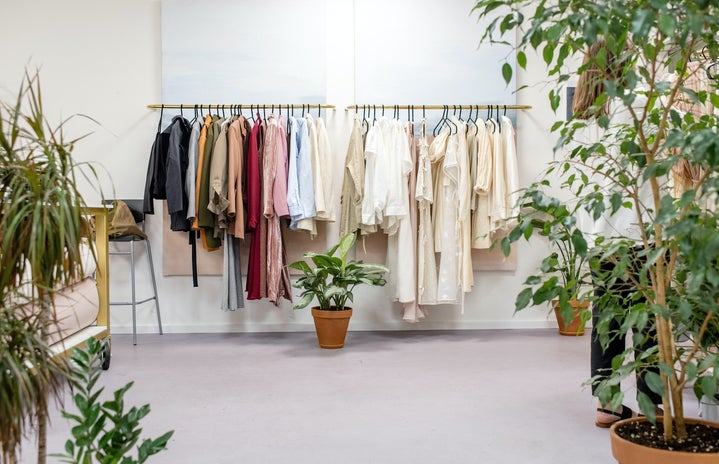It is time to stop brushing off Shein’s unethical practices.
In May of 2021, Shein surpassed Amazon as the most downloaded retail app in the United States. The retailer gained popularity on TikTok due to its trendy clothing items that are sold at a pretty cheap price compared to other retailers. People on the app began to share their massive yet affordable Shein hauls, and the trend exploded as other people did the same. Ever since this trend, however, questions about Shein’s ethics have arisen, as it is a fast-fashion clothing brand. Of course, there are environmental issues caused by the mass-production of Shein’s products, but its unethical practices extend past just being environmentally unsustainable.
Multiple small business owners and artists have taken to Instagram and Twitter within the past two years to expose Shein for stealing their creative ideas. The designer of the black-owned fashion brand, Elexiay, came forth on Twitter to call out Shein for stealing the design for her Amelia top, which was a pink and green crochet top that was handmade in Nigeria. Shein’s replica copied the exact color palette of the top as well as the same criss-cross pattern. The original shirt, which sold at $330, was sold on Shein for $17. The designer wrote, “it’s quite disheartening to see my hard work reduced to a machine copy.”
@Moon_chain, a small business on Instagram, exposed Shein for stealing her ideas for a crochet top. The original design was pretty unique: a pink crochet top with a square collar, puffy sleeves, and yellow lining. Shein’s product looked nearly identical to the original. Another Instagram business, @elizations, also accused Shein of stealing the idea for her crochet halter top. The original was sleeveless with colorful stripes in a specific order: hot pink, light pink, blue, yellow, purple. There is no denying that Shein’s product, which followed the exact same shape and color order, was a copy of the original. By doing this, Shein not only steals valuable business from these creators but undermines their artistic and creative ability when it comes to creating clothing.
Along with stealing from small businesses, the company has also had multiple instances of cultural insensitivity when creating its products. Last year, Khadija Rizvi, a journalism student and activist, called out Shein on her Instagram for selling a product titled “Fringe Trim Greek Fret Carpet.” The product, which Rizvi pointed out, resembled a Muslim prayer matt, as it contained images of mosques and the Ka’aba, which is a Muslim holy site located in Mecca. It is extremely offensive for the company to benefit off of a sacred item and not even label it as such. Not only four days later, the company was also once again called out for selling a product titled “metal swastika pendant necklace.” Although the company claims that it was to represent the Buddhist swastika, which symbolized spirit and good fortune, the anti-Sem-tic symbol can still be triggering for many.
Of course, you can’t talk about unethical practices without mentioning fast fashion’s impact on the environment, and Shein is no exception. An estimate last year stated that Shein’s annual revenue was around $10 billion. I can only imagine how many clothing items were produced and sold to rake in this amount of money, given that each item ranges around $10-$20. There is an economical price to pay when it comes to producing an abundance of clothes in such a short time, however.
To begin with, harmful chemicals are used to assist the growth of materials and the physical products themselves. The dying process of clothing releases an extreme amount of chemicals into our water systems, which kills aquatic life and also contaminates drinking water. Pesticides used in growing materials are also extremely harmful to the soil as well as the farmers growing the materials. The clothing items themselves contain a lot of plastic as well, which as most of us know, is not biodegradable. When Shein’s clothing items are thrown away, as a lot of them are because of the cheap quality and the nature of fashion trends, the plastic occupies landfills and releases harmful carbon dioxide into the air. There is nothing sustainable about the way that Shein produces their clothing.
These issues seem to scratch the surface of unethical standards of Shein and other fast-fashion brands, yet it seems like the general population turns a blind eye to the practices of these companies. What we lack as a society is the knowledge of ethics relating to clothing brands that we shop from, and if anything, I hope this article has influenced you to maybe read up about different companies. Before purchasing from Shein or other fast-fashion brands, please consider who you are benefitting from your purchases.

